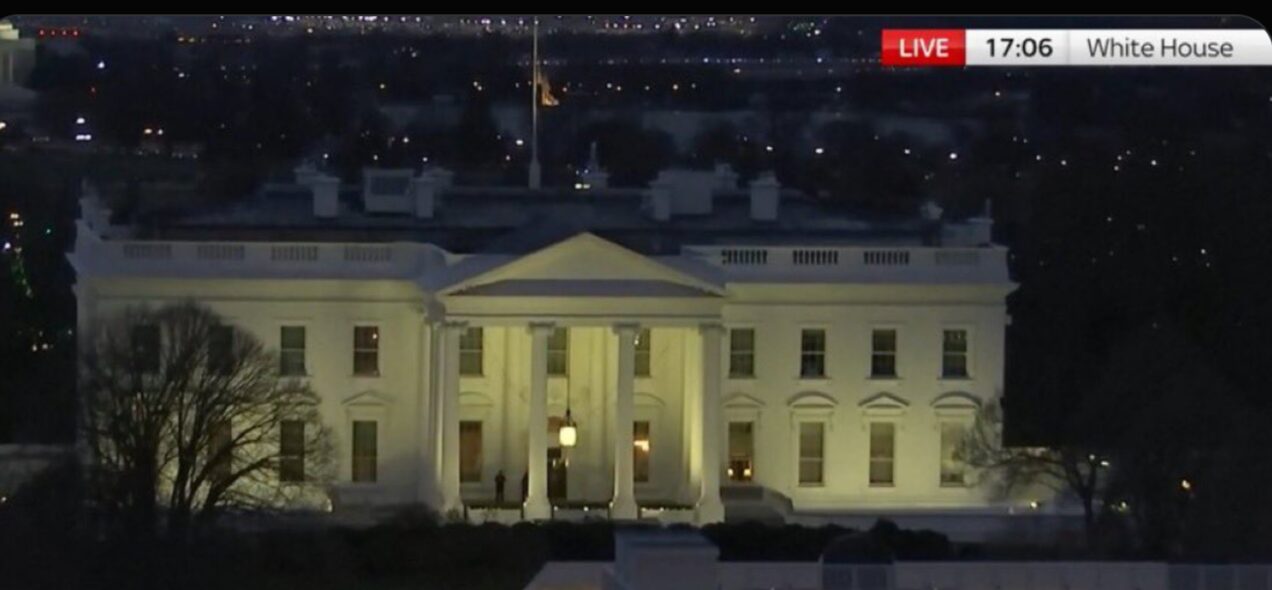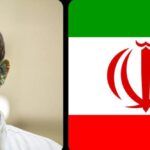The White House flag has been lowered to half-mast in honour of Former President Jimmy Carter
White House Lowers Flag to Half-Mast in Honor of Former President Jimmy Carter
In a poignant tribute to the life and legacy of former U.S. President Jimmy Carter, the White House has lowered its flag to half-mast following his death at the age of 100. This symbolic gesture reflects the profound respect and admiration the nation has for Carter, whose career spanned over a century and was marked by significant contributions both in and out of the Oval Office.
Jimmy Carter’s Legacy: A Century of Service
Jimmy Carter’s passing marks the end of an era for American politics and international diplomacy. Carter, who served as the 39th President of the United States from 1977 to 1981, left an indelible mark on the country with his commitment to human rights, peacebuilding, and humanitarian efforts. His presidency, though marked by domestic challenges such as economic turmoil and the Iran hostage crisis, was also defined by significant strides in global diplomacy, especially in the Middle East, and an unwavering focus on ethical leadership.
In particular, Carter’s role in the Camp David Accords in 1978, which brokered peace between Israel and Egypt, remains one of the most celebrated achievements of his presidency. His work toward peace, his dedication to promoting human rights globally, and his leadership in the creation of the Carter Center have ensured that his legacy extends far beyond his time in office.
The White House’s Tribute: A Nation in Mourning
The lowering of the White House flag to half-mast is a traditional gesture reserved for the passing of prominent figures in American history, particularly former presidents. It serves as a mark of national mourning and respect. The gesture was quickly followed by tributes from various public figures, including President Joe Biden, who praised Carter for his “decades of service” and his “dedication to democracy, peace, and human rights.”
In an official statement, President Biden said, “Jimmy Carter was a man of principle who dedicated his life to serving others. He made lasting contributions to peace, human rights, and global health, leaving a legacy that will continue to inspire future generations.”
The flag at half-mast serves as a visual reminder of the deep loss felt by many across the world, especially in the United States, where Carter’s work as a statesman, peacemaker, and advocate for the underprivileged touched countless lives.
A Life of Service Beyond the Presidency
After leaving the White House, Jimmy Carter remained a tireless advocate for humanitarian causes. In 1982, he founded the Carter Center, an organization committed to improving global health, promoting democracy, and resolving conflicts. The Carter Center’s work has been instrumental in eradicating diseases like Guinea worm disease and in fostering peaceful resolutions to conflicts around the world. Carter’s post-presidential life saw him awarded the Nobel Peace Prize in 2002, an honor recognizing his relentless work toward peace and his focus on human rights.
Even after his presidency, Carter remained an active voice for justice and equality, engaging in political discourse with a focus on diplomacy and the common good. His humility and commitment to serving humanity—both during his presidency and after—cemented his status as one of America’s most beloved public figures.
Bipartisan Recognition and Reflection
Although Carter’s presidency was not without its challenges, including high inflation, the energy crisis, and the Iran hostage situation, he earned widespread respect for his moral compass and his advocacy for global peace and human rights. Following his death, tributes have poured in from both sides of the political spectrum, showcasing the bipartisan admiration Carter garnered throughout his life.
While President Carter and former President Donald Trump held differing political ideologies, Trump released a statement expressing respect for Carter’s legacy, acknowledging the former president’s humanitarian work. Former President Barack Obama and President Biden, who both worked with Carter on various humanitarian initiatives, similarly honored his legacy of service and peacebuilding.
“His commitment to a more just and peaceful world is an example for us all,” Obama said in his tribute. “His impact on our world, and his love for his family and country, will live on.”
The unity in these tributes reflects the rare moments in American politics where leaders set aside their differences to honor the life of someone who dedicated themselves to making the world a better place.
The Impact of Carter’s Death on Global Peace Efforts
The death of Jimmy Carter also sends ripples through the global community, as his influence on international peace and diplomacy continues to resonate. As a former president, Carter was one of the most influential figures in the promotion of human rights globally. His focus on issues such as election monitoring, the fight against disease, and conflict resolution has shaped U.S. foreign policy and set a precedent for post-presidential engagement in global humanitarian efforts.
His work with the Carter Center, which remains active in many countries worldwide, has been essential in providing humanitarian aid, promoting democratic elections, and advancing health initiatives. As one of the few post-presidents to play such an active role on the world stage, Carter’s death serves as a poignant reminder of the power of diplomacy and the enduring importance of global cooperation.
A Symbol of Leadership and Humility
Carter’s life and death bring forward many lessons in leadership and humility. Unlike many other political figures, Carter’s time in the White House was marked by his strong ethical stance and deep concern for the well-being of people worldwide. His dedication to a peace-first approach and his genuine concern for the most vulnerable in society made him a leader not only admired in the U.S. but also respected around the world.
Even as his health declined in recent years, Carter continued to live by his principles, working with Habitat for Humanity, advocating for human rights, and continuing to serve in his capacity as a former president. His passing symbolizes the end of a remarkable era of service to the American people and the world at large.
Conclusion: Remembering a Legacy of Peace and Service
As the White House flag flies at half-mast in honor of Jimmy Carter, the nation reflects on a life defined by service, peace, and compassion. Carter’s legacy extends far beyond his presidency, marking him as a leader who made a profound impact not just in the United States, but across the globe.
In his passing, we remember a president who sought not only to govern, but to make the world a better place. As the world mourns the loss of Jimmy Carter, it also celebrates the life of a man whose dedication to peace, human rights, and service will continue to inspire future generations.

















Post Comment